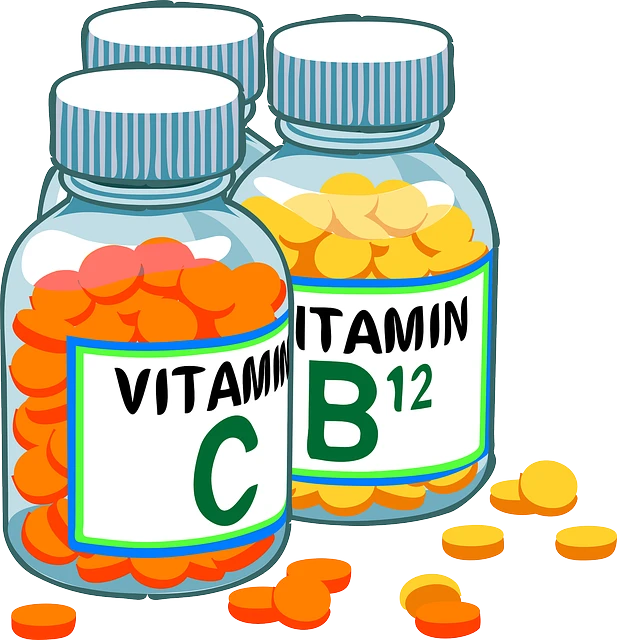Essential Guide to Vitamins and Minerals for Optimal Health
NutritionHealthVitaminsMinerals

Learn about crucial vitamins and minerals, their roles in the body, food sources, and how to ensure you're getting enough for optimal health and fitness.
Essential Guide to Vitamins and Minerals for Optimal Health
Understanding vitamins and minerals is crucial for maintaining optimal health and supporting your fitness goals. This comprehensive guide will help you navigate the complex world of micronutrients.
Understanding Micronutrients
Micronutrients are essential compounds that our bodies need in small amounts for:
- Growth and development
- Energy production
- Immune function
- Cellular repair
- Overall health maintenance
Essential Vitamins
Fat-Soluble Vitamins
Vitamin A
- Function: Vision, immune system, cell growth
- Sources:
- Sweet potatoes
- Carrots
- Spinach
- Eggs
- RDA: 900mcg (men), 700mcg (women)
Vitamin D
- Function: Bone health, immune system, mood
- Sources:
- Sunlight
- Fatty fish
- Egg yolks
- Fortified foods
- RDA: 600-800 IU
Vitamin E
- Function: Antioxidant, immune system
- Sources:
- Nuts and seeds
- Vegetable oils
- Avocados
- Spinach
- RDA: 15mg
Vitamin K
- Function: Blood clotting, bone health
- Sources:
- Green leafy vegetables
- Broccoli
- Brussels sprouts
- Vegetable oils
- RDA: 120mcg (men), 90mcg (women)
Water-Soluble Vitamins
Vitamin C
- Function: Immune system, antioxidant, collagen production
- Sources:
- Citrus fruits
- Berries
- Bell peppers
- Broccoli
- RDA: 90mg (men), 75mg (women)
B Vitamins
B1 (Thiamin)
- Function: Energy metabolism
- Sources: Whole grains, legumes
- RDA: 1.2mg (men), 1.1mg (women)
B2 (Riboflavin)
- Function: Energy production, cell function
- Sources: Dairy, eggs, lean meats
- RDA: 1.3mg (men), 1.1mg (women)
B3 (Niacin)
- Function: Energy metabolism, DNA repair
- Sources: Meat, fish, nuts
- RDA: 16mg (men), 14mg (women)
B6 (Pyridoxine)
- Function: Protein metabolism, brain function
- Sources: Poultry, fish, potatoes
- RDA: 1.3-1.7mg
B12 (Cobalamin)
- Function: Red blood cell formation, nerve function
- Sources: Animal products, fortified foods
- RDA: 2.4mcg
Essential Minerals
Major Minerals
Calcium
- Function: Bone health, muscle function
- Sources:
- Dairy products
- Leafy greens
- Fortified foods
- RDA: 1000-1200mg
Magnesium
- Function: Energy production, muscle and nerve function
- Sources:
- Nuts and seeds
- Whole grains
- Leafy greens
- RDA: 400-420mg (men), 310-320mg (women)
Potassium
- Function: Blood pressure, muscle function
- Sources:
- Bananas
- Potatoes
- Legumes
- Yogurt
- RDA: 3500-4700mg
Trace Minerals
Iron
- Function: Oxygen transport, energy production
- Sources:
- Red meat
- Spinach
- Legumes
- Fortified cereals
- RDA: 8mg (men), 18mg (women)
Zinc
- Function: Immune system, wound healing
- Sources:
- Meat
- Shellfish
- Nuts
- Seeds
- RDA: 11mg (men), 8mg (women)
Selenium
- Function: Antioxidant, thyroid function
- Sources:
- Brazil nuts
- Fish
- Meat
- Eggs
- RDA: 55mcg
Optimizing Nutrient Intake
Food First Approach
- Eat a variety of whole foods
- Include all food groups
- Focus on nutrient density
- Proper food preparation
- Smart food combinations
Supplementation Guidelines
When to Consider
- Restricted diets
- Medical conditions
- Increased needs
- Poor absorption
- Age-related needs
Supplement Selection
- Third-party testing
- Appropriate dosage
- Bioavailable forms
- Quality manufacturers
- Cost-effectiveness
Special Considerations
Athletes
- Increased needs
- Timing considerations
- Performance impact
- Recovery support
Vegetarians/Vegans
- B12 supplementation
- Iron sources
- Zinc optimization
- Calcium alternatives
Pregnancy/Nursing
- Folate needs
- Iron requirements
- Calcium intake
- DHA importance
Common Deficiencies
Risk Factors
- Poor diet
- Restricted eating
- Medical conditions
- Age
- Lifestyle factors
Prevention Strategies
- Dietary diversity
- Food combining
- Regular testing
- Supplementation when needed
- Lifestyle optimization
Nutrient Timing
Meal Planning
- Balanced meals
- Smart combinations
- Regular intervals
- Portion control
- Hydration
Exercise Considerations
- Pre-workout nutrition
- Post-workout recovery
- Hydration status
- Electrolyte balance
- Recovery support
Conclusion
Optimal nutrition requires:
- Understanding nutrient roles
- Food-first approach
- Strategic supplementation
- Regular monitoring
- Individual adjustment
Focus on:
- Whole food sources
- Balanced intake
- Quality supplements when needed
- Regular assessment
- Professional guidance when necessary
Remember that individual needs vary based on:
- Age
- Activity level
- Health status
- Dietary preferences
- Life stage

